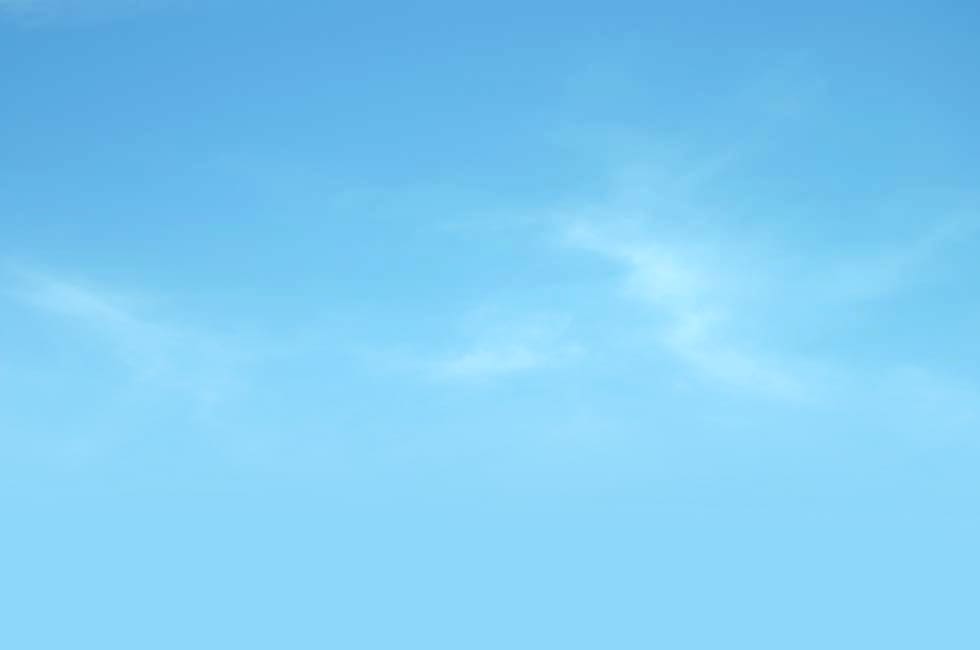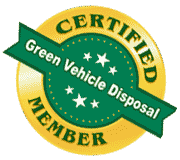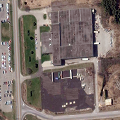recycle city
Click on any section of Recycle City that you want to learn more about.
USED BATTERIES

Disposal of old batteries is an environmental problem because they contain lead acid. An average car battery has 18-20 pounds of
lead acid, a toxic substance that can cause serious health problems if not disposed of properly. These batteries make up almost 65
percent of the lead in the solid waste from cities and towns. (That's over 138,000 tons of lead!)
At the junkyard, Ken and David recycle any batteries that cannot be reused. Both the lead and the battery's plastic casing are
recyclable. Ken and David remove old batteries, and delivers them to scrap lead dealers and battery manufacturers, who properly
dispose of the acid and melt the lead and plastic down for reuse.
SALES OFFICE

Ken and David have taken into consideration that some of the residents in Recycle City don't have the time or maybe the skill to
remove their own parts. The parts that were removed by the dismantlers are put into a computerized inventory system. At Standard
Auto Wreckers they have a fully qualified Sales Team ready to find inventoried parts on the shelf.
Here we see Ian,part of the Sales Team, helping one of customers get her part with use of their computerized inventory system.
Ian is directing his customer to the Customer Service Area so that she can pay for and receive her part.
CUSTOMER SERVICE

Customer service is very important at Standard Auto Wreckers. Here we have some customers lined up to pay the cashier for their
recycled parts. The cashier is one of the many professionals hired at Standard to make the purchase of used auto parts easier and
more enjoyable for the customers.
We also see here the Office Manager Jackie helping with Customer Service. She wants the customers to keep coming back for all of
their recycled auto parts needs.
CRUSHING CARS

After the fluids are drained out of the vehicle. And all of the useable parts are removed. Then it is time to meet the crusher!
At Standard Auto Wreckers the shells of the vehicles are flattened and then stacked and sent to the steel mill for the metals to be
shredded and then recycled.
The steel mill separates the shredded material into three parts: iron and steel (called ferrous metals); other metals; and materials
that are not metallic, such as bits of shredded plastic, glass, rubber, or fabric. Steel and other metals go to a steel mill or foundry
where they are melted down so they can be used again. Leftover non-metallic parts that can't be recycled go into landfill.
DISMANTLING

When dismantling a vehicle at Standard Auto Wreckers, not only are the useable parts removed, all hazardous fluids are also removed
for proper disposal.
Our dismantlers are fully trained in their field, they even receive on going training in the recovery of hazardous fluids.
HAZARDOUS FLUIDS

Used motor oil
Used motor oil contains lots of toxic materials. Ken and David know that recycling used motor oil is an economically and environmentally
smart way to handle this kind of hazardous waste. This oil can be cleaned and reused.

Used CFCs
What are CFCs and why does Standard Auto Wreckers collect them?
For many years, car air conditioners and home refrigerators have used chemical compounds called chlorofluorocarbons, or CFCs for short,
t
o help produce cool air. (Today, new cars and refrigerators don't use them.)
CFCs aren't dangerous by themselves, but they become a big problem if they escape into the air. Once they escape, they float up into the
ozone layer—about 10 to 30 miles above the Earth. (Stratospheric ozone wraps all the way around the Earth and blocks the sun's most
dangerous ultraviolet [UV] rays, keeping them from harming us.)
Once CFCs are up in the stratosphere where it's freezing cold, they break down into smaller pieces, and that's when the trouble starts...
One of these smaller bits, chlorine, eats the oxygen atoms that make up some of the ozone. As the chlorine eats the oxygen atoms, the ozone
layer gets thinner and can't keep as many UV rays from reaching the Earth. Too much UV light reaching the Earth can cause severe sunburn,
eye damage, skin cancer, kill crops and other plants, and even destroy sea life.
Fortunately, CFCs can be recycled. In the Recycle City, Ken and David use special equipment to capture the cooling liquids that contain
CFCs from the car's air conditioner. That way, the CFCs don't escape into the air and can be used again in older cars.
(Since new car air conditioners use different chemicals that don't hurt the ozone layer, CFCs will gradually become less of a problem.)

Used Antifreeze
At Standard Auto Wreckers there are special equipment for recycling antifreeze. Ken and David use special equipment because, even though
antifreeze is biodegradable, it is poisonous and has some environmentally harmful ingredients, like lead. (Antifreeze is also known as
coolant, because it not only keeps car engines from freezing, it also keeps them from getting too hot.)
They carefully catch old antifreeze in a clean container.
U-PULL-IT YARD

In Recycle City customers can bring their own tools to pull their own parts and save cash as well as recycling.Ken and David have
taken into consideration that some of the residents in Recycle City have the skill to remove their own parts.
For those Do-It-Yourselfers, Ken and David say "Bring your own tools, and pull your own parts and save big!"
FLATTEN VEHICLES

Ken and David remove all reusable parts before the stripped cars are crushed flat, loaded on to a flatbed truck and taken to the Steel Mill.
Then the Steel Mill loads the crushed cars by the crane into a shredder. Then, the Steel Mill separates the shredded material into three
parts: iron and steel (called ferrous metals); other metals; and materials that are not metallic, such as bits of shredded plastic, glass,
rubber, or fabric. Steel and other metals are melted down so they can be used again. Leftover non-metallic parts that can't be recycled
go into landfill.
REUSEABLE PARTS

In Recycle City, whenever a vehicle needs repair, the locals know they can go to Standard Auto Wreckers for replacement parts at good
prices. Some of the reusable things they can find at Standard are:
- Engines
- Fenders
- Seats
- Hoods
- Bumpers
- Doors
- Wheel covers
- Tires
REUSEABLE PARTS

In Recycle City, whenever a vehicle needs repair, the locals know they can go to Standard Auto Wreckers for replacement parts at good
prices. Some of the reusable things they can find at Standard are:
- Engines
- Fenders
- Seats
- Hoods
- Bumpers
- Doors
- Wheel covers
- Tires
REUSEABLE PARTS

In Recycle City, whenever a vehicle needs repair, the locals know they can go to Standard Auto Wreckers for replacement parts at good
prices. Some of the reusable things they can find at Standard are:
- Engines
- Fenders
- Seats
- Hoods
- Bumpers
- Doors
- Wheel covers
- Tires
KEN AND DAVID GOLD

Ken and David Gold are the owner operators of Standard Auto Wreckers. Ken and David look at the vehicles that come into the yard as more than the parts they can recycle. They also pay close attention to the recovery of oil, antifreeze, and CFCs. Ken and David also make sure to recycle used batteries and tires, reselling the ones that can be reused.
KEN AND DAVID GOLD

Ken and David Gold are the owner operators of Standard Auto Wreckers. Ken and David look at the vehicles that come into the yard as more than the parts they can recycle. They also pay close attention to the recovery of oil, antifreeze, and CFCs. Ken and David also make sure to recycle used batteries and tires, reselling the ones that can be reused.
OLD TIRES

Worn-out tires don't need to be thrown away. Ken and David do two things to keep old tires going:
- He sells tires that are still safe for use on the road.
- When old tires can't be put back into shape, Ken and David sell them to companies that reprocess them. Old tires can be shredded or melted down and used to make other materials, such as playground surfaces or asphalt to pave roads.
TIRE SHOP

Our Tire Shop has used tires in stock and offers installation and balancing while you wait. All reusable Tires and Rims are resold.
Tires that are not reusable are recycled. Old tires can be shredded or melted down and used to make other materials, such as playground
surfaces or asphalt to pave roads.
When the tires on your car wear out, don't just toss them into the nearest ditch or garbage can! Take them to your local service station























